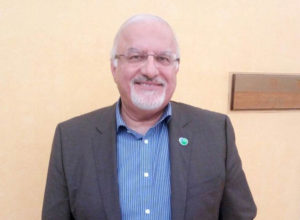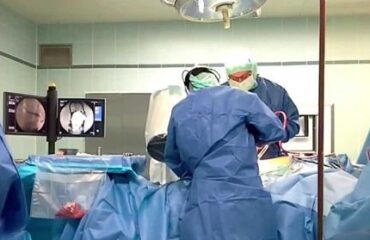Surgeons transplant heart that had stopped beating
Surgeons in Australia say they have performed the first heart transplant using a “dead heart” where the donor hearts from adults usually come from people who are confirmed as brain dead but with a heart still beating.
A team at St Vincent’s Hospital in Sydney revived and then transplanted hearts that had stopped beating. The first patient who received a heart said she felt a decade younger and was now a “different person”. It is well known that hearts are the only organ that is not used after the heart has stopped beating – known as donation after circulatory death.
The operation is conducted as follows: beating hearts are normally taken from brain-dead people, kept on ice for around four hours and then transplanted to patients, and then it is transplanted in the recipient patient’s body.
The novel technique used in Sydney involved taking a heart that had stopped beating and reviving it in a machine known as a “heart-in-a-box”, where the heart is kept warm, the heartbeat is restored and a nourishing fluid helps reduce damage to the heart muscle.
The first person to have the surgery was Michelle Gribilas, 57, who was suffering from congenital heart failure. She had the surgery more than two months ago. “Now I’m a different person altogether,” she said. “I feel like I’m 40 years old – I’m very lucky.” There have since been a further two successful operations.
Prof Peter MacDonald, head of St Vincent’s heart transplant unit, said: “This breakthrough represents a major inroad to reducing the shortage of donor organs.” It is thought the heart-in-a-box, which is being tested at sites around the world, could save up to 30% more lives by increasing the number of available organs.
New British Genetic test detects thousands of diseases
Researchers at the ‘Wilkham’ Center in Cambridge, Britain have developed a new test for the detection of thousands of rare hereditary genetic diseases within a few minutes.
The test is based on conducting a comprehensive genetic examination on a donation sample of blood or saliva and comparing the results with a huge database, to determine the nature of the disease accurately within minutes.
Developers of this test seek to make it available to patients in the UK hospitals within a short period, to detect up to seven thousand genetic diseases, and would only cost about $ 1,500.
Researchers expect that this test will put an end to the long periods of waiting for the diagnosis of many genetic diseases in children as well as embodying a new scientific revolution in the treatment of these diseases
Hypnotics and sedatives may lead to addiction
German Center for Addiction Treatment warned that the use of hypnotics and sedatives over a period of time may lead to addiction, adding that the person addicted to those medications does not notice it at first, as one pill a day is sufficient for his needs, and thus there is no need to increase the dose.
When this daily dosage is suspended, the patient presents withdrawal symptoms, which may appear similar to the original symptoms but may be even stronger, and thus lead to abuse medication abuse once again. With such continued engagement the patient feels exhausted and acclimated.
To avoid the risk of addiction, the German Center stressed the need to only use hypnotics on a doctor’s prescription, taking the lowest possible dose for the shortest time, considering gradually easing the dosage instead of sudden suspension of the medications use.
On the other hand, the center reported that the contribution of hypnotic and sedative pills is minimal at resolving the root cause of their prescription, providing only temporary relief, adding that it is better to resort to relaxation or psychiatric treatment as an alternative technique.
Consuming Red Meat increase risk of Diabetes
A study from Singapore published in the U.S. found that an increased intake of red meat was associated with higher risk of type 2 diabetes. Health Day News website said that researchers from Public Health College of Singapore’s National University showed that a study of 149,000 men and women found that increased intake of red meat increased the risk of contracting type 2 diabetes by about 48%.
They alos found that those who reduced their red meat intake were 14% less likely to suffer from type 2 diabetes. The study’s main supervisor said that increased intake of red meat increases the chances of contracting diabetes recommending the reduction of red meat intake and replacement with healthier choices such as vegetables, soy products, nuts, fish and whole grains.


![IMG-20140202-WA00031-300×200-273×182[1]](https://kuwaittransplant.org/wp-content/uploads/2017/06/IMG-20140202-WA00031-300x200-273x1821.jpg)